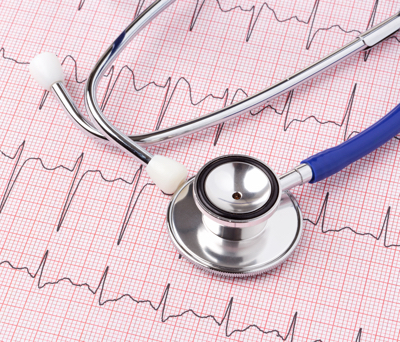EKG TESTING
THE HEART OF THE MATTER

WHAT IS AN EKG (ECG) TEST?
An electrocardiogram records the electrical signals in your heart. It's a common test used to detect heart problems and monitor the heart's status in many situations. Electrocardiograms — also called ECGs or EKGs — are often done in a doctor's office, a clinic or a hospital room. And they've become standard equipment in operating rooms and ambulances.
An ECG is a noninvasive, painless test with quick results. During an ECG, sensors (electrodes) that can detect the electrical activity of your heart are attached to your chest and your arms and legs. These sensors are usually left on for just a few minutes.
Your doctor will be able to give you immediate feedback on this test and recommend further heart tests if needed.
WHAT HEART PROBLEMS CAN BE DETECTED WITH AN EKG TEST?
An EKG can be the first step in detecting a wide variety of heart issues such as:
• Coronary Artery Disease (blockages in the heart that can cause heart attacks)
• Congestive Heart Failure
• Irregular Heart Beats such as Atrial Fibrillation or Bundle Branch Blocks
• Enlargement of the atrium or ventricles of the heart
• Tachycardia or Bradycardia
• Sick Sinus Syndrome
• Heart blocks (electrical)
• Heart attacks